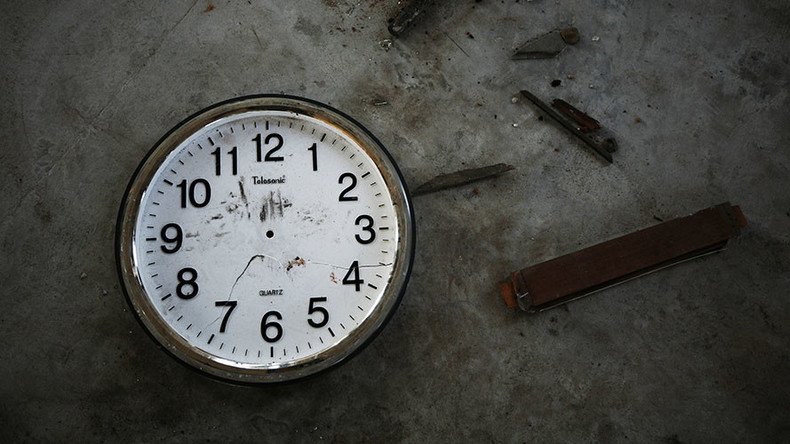Brace yourselves, ‘leap second’ will mean 2016 lasts longer than expected

The year that brought you the death of David Bowie, political upheaval and seemingly endless misery will last just that little bit longer - one second to be exact - to account for Earth’s slowing rotation.
The reason? Well it’s all to do with the fourth dimension - time.
The fluctuating speeds of our planet’s rotational spin mean that occasionally even the world’s most precise clocks can end up out of whack with astronomical time - which is based on Earth’s journey around the sun.
These atomic clocks inform Coordinated Universal Time (UTC), the globally recognized 24-hour timekeeping system since the 1960s, and are so precise in their measurements that they keep ticking on, regardless of the tiny changes of Earth’s rotation.
To combat this, the organization responsible for maintaining global time standards, the International Earth Rotation and Reference Systems Service (IERS), will add a ‘leap second’ to the last minute of 2016.
“A positive leap second will be introduced at the end of December 2016,” a notice on the IERS website reads.
Without periodically adding this extra second, UTC could eventually end up being really off-kilter, seriously impacting countries who base their days around the time scale.
Professor Judah Levine, a physicist at the University of Colorado and expert in atomic clocks, said the leap second was first introduced in its present form in 1972 “to allow astronomical time to catch up.”
In an email to RT.com, he said: “The need for leap seconds will slowly increase as the rotation of the Earth slows down.
“If leap seconds were not used, there would be a slow divergence between atomic time and solar time. The rate of divergence is presently about 1 minute per century.”
An article by Dr Markus Kuhn, senior lecturer in computer science at the University of Cambridge, explains that due to Earth’s gradually slowing trip around the sun the length of a day has increased approximately 2.5 milliseconds since the early 19th century.
“Leap seconds have to be inserted on average every 1-2 years during this century,” Dr Kuhn says. “However, due to an unusual temporary acceleration of the Earth, no leap second was needed during the 17-year gap between the end of 1998 and the end of 2015,” he added.
A statement released to Phys.org by the Paris Observatory, from where the IERS operates, further details the practice: “This extra second, or leap second, makes it possible to align astronomical time, which is irregular and determined by Earth’s rotation, with UTC which is extremely stable and has been determined by atomic clocks since 1967.”
A 1 heure du matin les horloges afficheront 00:59:60: une seconde de + pour fêter la nouvelle année #reveillonhttps://t.co/X20fvBN99ipic.twitter.com/mkkoPAeDYK
— France 3 Paris (@France3Paris) December 16, 2016
While the leap second may solve one problem, it also presents another.
In 2012, the additional second created havoc, causing websites unprepared for the change to crash. Australian airline Qantus was one of the businesses affected, experiencing scores of flight delays because of problems the leap second sparked with its check-in system.
Global issues with Altea system affecting check-in. Issue resolved and ports will be back online shortly. We're sorry for the inconvenience.
— Qantas (@Qantas) July 1, 2012
“The leap seconds occur irregularly, and many software applications do not handle it correctly. Problems that are fixed in one version often re-appear in the next version,” Professor Levine explained.
“In addition, the official name of the leap second is 23:59:60, but most clocks cannot display that time.”
Asked how organisations might prepare for the change, he indicated that some cloud providers “smear” the leap second by slowing the rate of their online clocks on the last day of the month.
He added that this measure, however, “does not conform to the standard definition” of a ‘leap second’.












